Friends of the Earth rebuked for anti-fracking leaflet
Advertising watchdog orders environmental campaign group not to repeat misleading claims
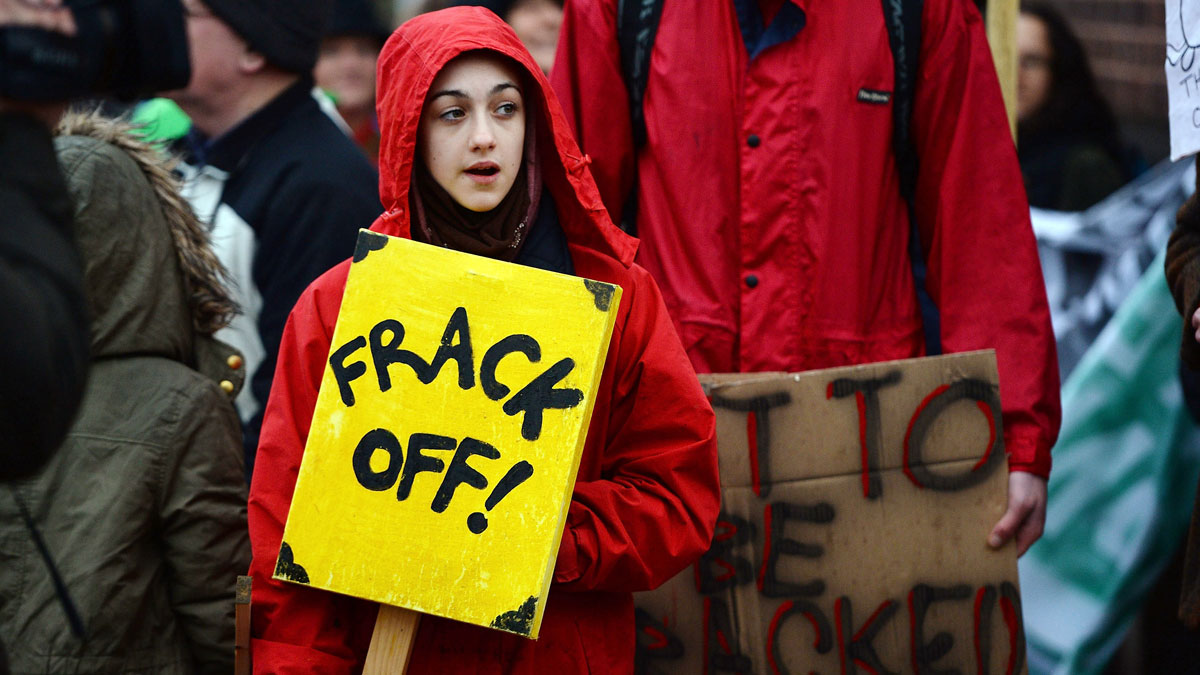
A free daily email with the biggest news stories of the day – and the best features from TheWeek.com
You are now subscribed
Your newsletter sign-up was successful
Fracking: joy for campaigners as Lancashire rejects Cuadrilla
29 June
The Government's hopes of a shale gas boom in the UK have been dealt a major blow after councillors in Lancashire unexpectedly voted against an application for the first new fracking licence to be issued in the UK in four years.
On Friday Lancashire Country Council rejected an application from Cuadrilla to begin hydraulic fracturing on a site between Blackpool and Preston amid concerns over its impact on local traffic congestion. A decision on a second application from the firm to drill at a site in nearby Preston New Road was deferred to today, but was expected to be approved as it had the backing of council planning officials.
The Week
Escape your echo chamber. Get the facts behind the news, plus analysis from multiple perspectives.

Sign up for The Week's Free Newsletters
From our morning news briefing to a weekly Good News Newsletter, get the best of The Week delivered directly to your inbox.
From our morning news briefing to a weekly Good News Newsletter, get the best of The Week delivered directly to your inbox.
But councillors voted by a healthy majority against the plans, backing a motion which the BBC says cited "unacceptable noise impact" and the "adverse urbanising effect on the landscape". The news will be seen as a victory for the high profile campaigns back by environmental groups which have seen hundreds of protesters flock to the area.
Cuadrilla is expected to the appeal the decision. In a statement it said it was "surprised and disappointed" and was reviewing options for appeal, including the potential to review other decisions which have gone against the firm.
The statement also cited the "strict regulatory framework for governing oil and gas exploration and production" in the UK and Europe, which has seen it "secure many permissions and permits" and submit a 4,000-page environmental assessment alongside the application. A legal adviser had told the BBC previously a rejection of the application on environmental grounds could be seen as "unreasonable".
More broadly, the Daily Telegraph cites comments from Robbie Owen at law firm Pinsent Masons warning shale investors may now feel the UK is becoming too "too difficult and unpredictable", which would reduce the ability of new Environmental Secretary Amber Rudd to honour a pledge to "deliver" fracking in Britain, reports The Independent.
A free daily email with the biggest news stories of the day – and the best features from TheWeek.com
Fracking bid in limbo as first application rejected
26 June
Lancashire County Council has rejected an application for the first new 'fracking' licence in four years, but has deferred until next week a decision on a second site given a green light by planners earlier this month.
Amid local anger and against a backdrop of protests over the past four days, the council followed the recommendations of planning officials and rejected an application which would have allowed Cuadrilla Resources to begin fracking for shale gas at Roseacre Wood, between Preston and Blackpool.
Cuadrilla is an affiliate of Australian energy firm AJ Lucas, and backed by American private equity firm Riverstone.
A decision on a second site in Preston New Road, which was approved by planners, has been deferred to Monday. Councillor Paul Hayhurst suggested that the authority was minded to refuse this application too, The Independent reports, but said that it had received legal advice which suggested that a refusal could be successfully challenged.
If a licence was granted it would be the first time fracking was approved in the UK since a ban was imposed in 2011 after drilling by Cuadrilla in a mine near Blackpool led to earth tremors. The government is in favour of opening up the UK market for fracking, citing strong economic benefits reaped in the US.
Labour leadership hopeful Andy Burnham has called for a moratorium on the practice until stronger scientific evidence is provided that it is safe, The Guardian reports, in line with a decision taken by the Scottish government.
The rejection of the Roseacre site was due to concerns that it would lead to an unmanageable increase in traffic. Cuadrilla has said it was not surprised by the decision and is reviewing all of its options, including the right to appeal.
Fracking: Protests planned ahead of shale gas vote
23 June
Hundreds of protesters are expected to begin arriving at the site of two proposed shale gas exploration sites in Lancashire today.Demonstrations have been planned for the next four days ahead of a vote by Lancashire County council on whether to approve the two new hydraulic fracturing, or "fracking", sites."No rational person could give approval to this scheme after seeing all the facts," anti-fracking campaigner John Tootill told Sky News. "If this goes ahead there are serious health and environmental concerns. I would seriously fear for my family's health if the application is approved."Fracking is the process of injecting a high-pressure mixture of water, sand and chemicals into holes drilled deep into the earth. The process releases gas trapped in rocks, which then flows back out of the head of the well. A study into the impacts of fracking in Pennsylvania in March last year found that it was likely that some wells will suffer "failures" causing air and water pollution – and the longer term effects of the technique are unknown.Fracking is now commonplace in many parts of the US, but remains controversial in the UK. Earlier this year, planning officers at Preston Council, also in Lancashire, recommended approval of one site in Preston New Road, but opposed a second site at Roseacre Wood, Sky News reports. However, the planners' objections related to traffic concerns rather than concerns about health or pollution. Greenpeace UK energy and climate campaigner Daisy Sands said that the protests in Lancashire represented the concerns of ordinary people. "Local activists will be out in numbers to support Lancashire residents," Sands said. "Two thirds of local people are in favour of a moratorium on fracking. They don't want Lancashire to be the testing lab for an inexperienced and risky industry. Councillors should listen to their plea."A Lancashire police spokesman said: "When we are aware of planned protests, we always work with the organisers to facilitate a peaceful protest. Our role is a supportive one to ensure that the democratic process can run smoothly.
"There will be officers in the area to protect and reassure members of the public. If anyone commits a criminal offence they will be dealt with fairly but firmly."
Fracking must be banned to meet carbon targets, MPs say
26 January 2015
A cross-party group of MPs has called for a moratorium on fracking, arguing that there are "huge uncertainties" about its impact on water supplies, air quality and public health.
In a blow to government plans, the environmental audit committee said the impact of fracking would also be "inconsistent" with the UK's climate change obligations.
"Ultimately fracking cannot be compatible with our long-term commitments to cut climate-changing emissions unless full-scale carbon capture and storage technology is rolled out rapidly, which currently looks unlikely," committee chair Joan Walley MP told the BBC.
In the group's latest report, MPs also accused the government of fast-tracking "undemocratic" laws to help the fracking industry. It also found that shale gas extraction is "unlikely to be commercially viable unless developed at a significant scale" to compete against a growing energy sector.
David Cameron, a firm supporter of fracking, argues that it will help drive down domestic energy costs and decrease the need for foreign oil imports. But campaigners say the government is ignoring warnings about its environmental cost.
Meanwhile, in a leaked letter , George Osborne has requested that ministers intervene to fast-track fracking in the UK as a "personal priority", passing on a number of requests from the drilling firm Cuadrilla. Anti-fracking campaigners have described the letter as evidence of government collusion with the industry, while Labour officials said it was clear the government was an "unabashed cheerleader" for fracking.
"Such collusion with a highly unpopular industry will just make fracking an even more politically toxic issue," Tony Bosworth from Friends of the Earth told The Guardian. "The government should follow other countries and call a halt so we can assess the risks to the environment, people's health and our climate."
Fracking: Ineos to invest £640m in UK shale gas exploration
20 November 2014
Chemicals giant Ineos is expected to announce plans today to invest £640m in exploring and producing shale gas in Scotland – a move seen as a "significant vote of confidence" in the emerging sector.
The company wants to use the gas to supply its chemical plants, including Grangemouth in Stirlingshire, which supplies about 70 per cent of the fuel sold in Scotland's filling stations.Ineos, run by British businessman Jim Ratcliffe, with headquarters in Switzerland, hopes to transform the economics of Grangemouth, which is currently running at a loss.BBC industry correspondent John Moylan says the move will be seen as a significant vote of confidence in the sector and positions Ineos as one of the major players in the emerging industry.However, it could also put Ineos in the firing line of protesters, who believe the fracking process needed to extract shale gas is dangerous and harmful to the environment.Fluids are forced at high pressure into shale rock underground to release the natural gas trapped inside. Anti-fracking groups staged protests against an exploratory well near the Sussex town of Balcombe last year, raising concerns about the huge amount of water used, the risk of earth tremors and potentially carcinogenic chemicals polluting groundwater.Ineos has said that shale gas is an opportunity the European Union "cannot afford to turn down" if it wants to compete with America, where access to shale gas has slashed energy prices and "fuelled its industrial revival".The company has already announced plans to pay six per cent of its fracking revenues to homeowners living above its operations in the UK. It said the giveaway is likely to be worth around £2.5bn over 10 to 15 years, but critics condemned the proposal as "more bribes and bulldozers".
Earlier this week, British artist David Hockney lent his support to fracking, arguing that the British need for energy outweighed the negative impact of the process.
Fracking: ministers tighten rules as bidding process opens
28 July
Energy companies are being invited today to bid for fracking licences in the UK, as ministers clarify the rules on where the controversial drilling can take place.
The government is due to unveil new planning guidance, making it harder to drill in national parks and areas of outstanding natural beauty.
Firms will be asked to submit a "particularly comprehensive and detailed" environmental statement with their applications if they want to frack on or near protected countryside. These applications will be refused in all but "exceptional circumstances and in the public interest".
The Guardian says the competition for licences is likely to attract "significant interest from energy companies keen to explore Britain's new-found shale reserves, particularly in the Bowland basin of the north-west, a central belt of Scotland and the Weald in the south-east".
With more than half of Britain open to fracking, the move is expected to face controversy. Since experts confirmed the scale of the UK's shale resources, campaigners have been protesting in areas such as Blackpool and Balcombe about the impact of fracking on the landscape, drinking water and environment.
Green Party MP Caroline Lucas, who was arrested for protesting in Balcombe last year, is among those disappointed that there is no outright ban on fracking in protected areas.
"Many campaigners have campaigned for decades to get national park status, and they are given for a reason. The idea that they could be offered up to the fracking firms is a scandal," she said.
But Matthew Hancock, the newly appointed Tory energy minister, told the Sunday Times that fracking has to be fast-tracked to give Britain greater energy security and protect it from Russian aggression. He warned that tensions with Russia following the downing of flight MH17 meant Britain should seek to become energy self-sufficient.
Fracking: PM to offer £800k payouts to soothe opponents
23 May
Fracking compensation is to be increased as a new report reveals that southern England is likely to be sitting on several billion barrels of oil.
The report, by the British Geological Survey (BGS), is likely to confirm substantial reserves in areas such as Kent, Sussex, Surrey and Hampshire.
Prime Minister David Cameron is due to announce a compensation package later today for those affected. Communities will reportedly be offered average payouts of £800,000, on top of a one-off payment of £100,000 and a one per cent share of profits, reports The Times.
The BGS has already suggested there could be enough shale gas in the north of England to supply Britain for 40 years. However, it remains to be seen whether extracting the reserves is economically viable.
Ministers claim the process could bring down energy bills and create thousands of jobs, but environmental activists are bitterly opposed to the technique. Opponents say the process can cause small earthquakes and pollute water supplies.
The government is preparing to introduce changes to the trespass laws that would make it easier to begin fracking while tax breaks have already been put forward. Energy companies have been reluctant to begin drilling in Britain until the government amends the legislation.
The legal changes would mean fracking companies have the right of automatic access below 300m underground, far deeper than those granted to gas or electricity companies.
In its editorial today, the Daily Telegraph says fracking has "the potential to boost Britain's economy dramatically". But it says that in order to endorse drilling "individuals and communities need to see the material benefits".
Business Secretary Vince Cable told Sky News that people involved in the fracking debate appeared to be "over-reacting in both directions". He said fracking is neither a "miracle round the corner" nor a reason to be "terrified" that it is going to pollute and compromise the environment.
Fracking: Total invests £30m in controversial shale sector
13 January
FRENCH energy giant Total has today announced plans to invest in Britain's shale gas sector, a deal believed to be worth £30m.
The company has bought a 40 per cent stake in two exploration licences in the Gainsborough Trough, a geological basin in Lincolnshire, east England and will help fund the site's exploration programme. But environmental campaigners have attacked the plans, accusing the UK government of ignoring the risks of fracking, the process used to extract gas from shale rock beneath the ground.
What is the significance of the Total investment?
It is the first major oil company to invest in Britain's fledgling shale sector, says the Financial Times, and the deal will be seen as "a big vote of confidence" for the industry, which is being heavily promoted by a government keen to replicate the success of the US shale boom on British soil.
Will the Total deal spark more protests?
Hundreds of protesters turned out at a fracking site in Barton Mass, Greater Manchester, yesterday. But their efforts seem unlikely to halt the tide of interest among corporations and the government, says The Guardian. Other energy giants seem likely to follow in the footsteps of Total, says the newspaper, with whispers that Chevron, Conoco and Shell could soon follow.
-
 Buddhist monks’ US walk for peace
Buddhist monks’ US walk for peaceUnder the Radar Crowds have turned out on the roads from California to Washington and ‘millions are finding hope in their journey’
-
 American universities are losing ground to their foreign counterparts
American universities are losing ground to their foreign counterpartsThe Explainer While Harvard is still near the top, other colleges have slipped
-
 How to navigate dating apps to find ‘the one’
How to navigate dating apps to find ‘the one’The Week Recommends Put an end to endless swiping and make real romantic connections
-
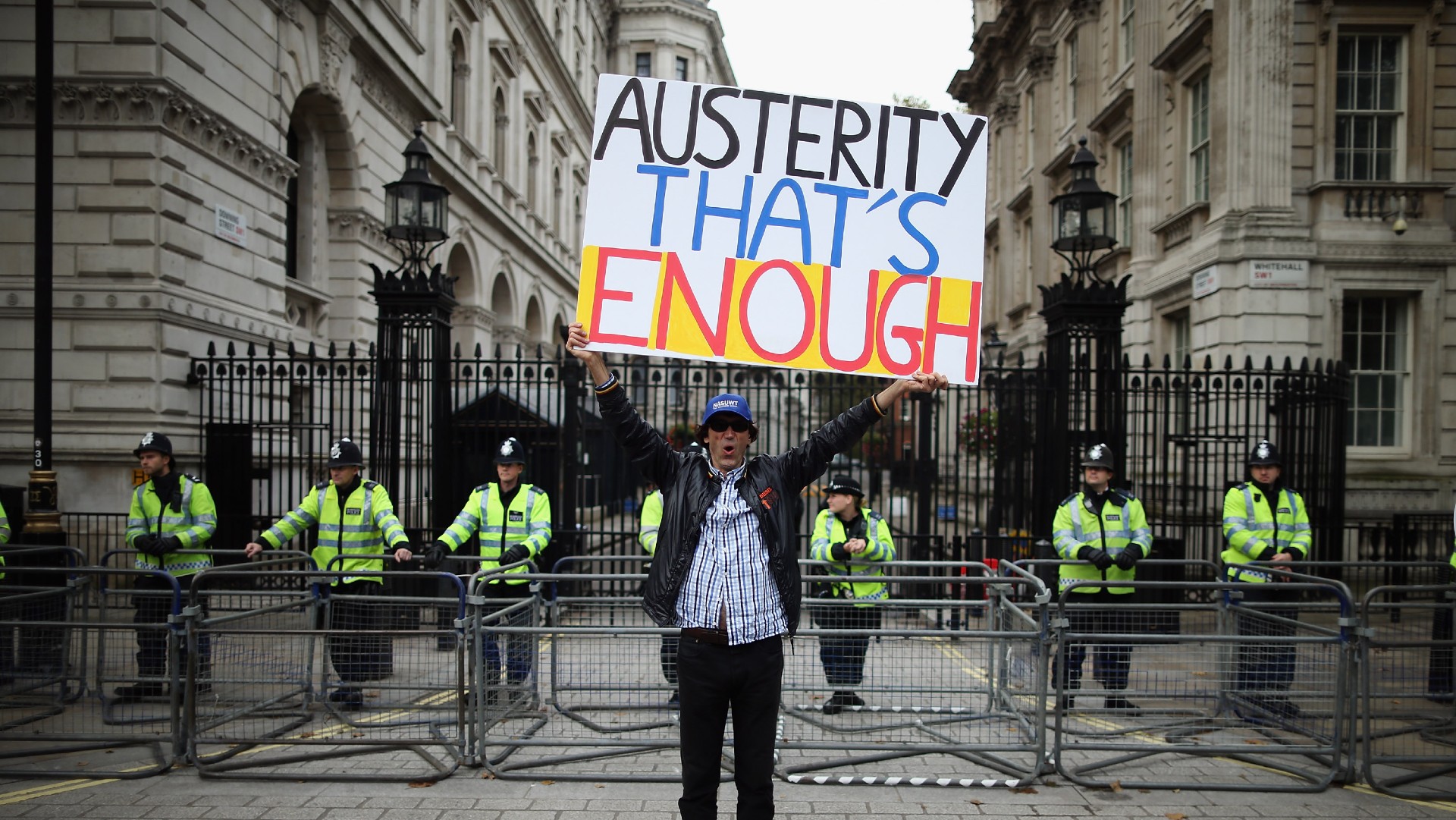 Do Tory tax cuts herald return of austerity?
Do Tory tax cuts herald return of austerity?Today's Big Question Chancellor U-turns on scrapping top rate tax but urges ministers to make public spending cuts
-
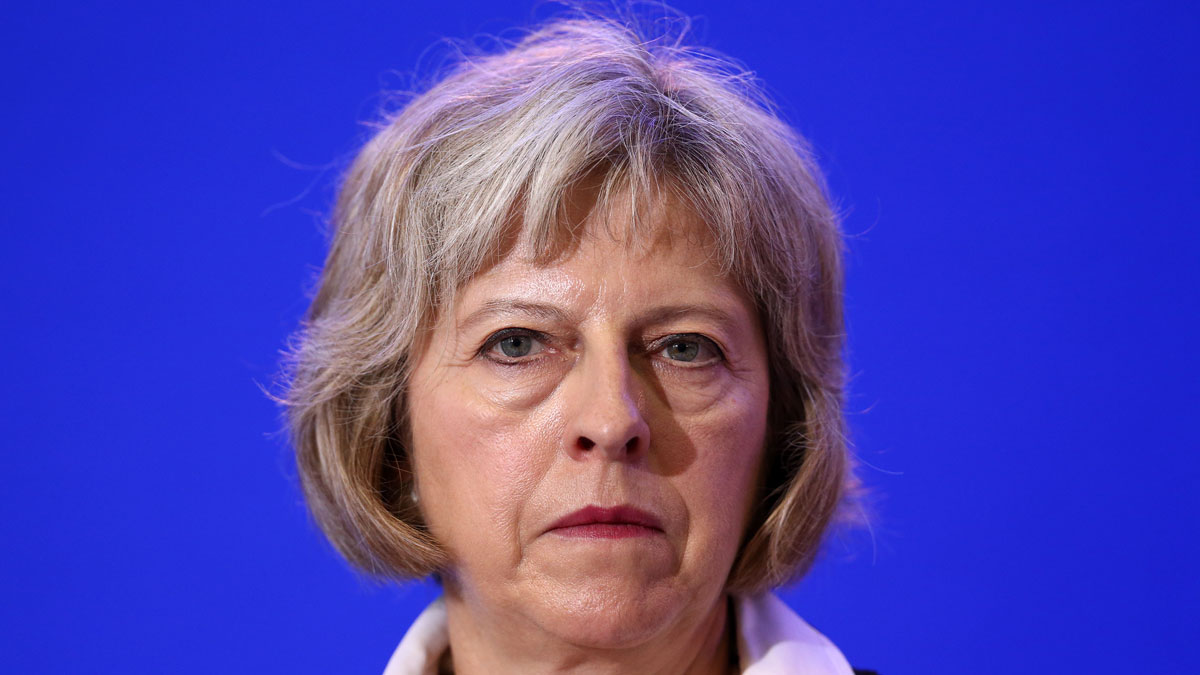 MPs and businesses cross swords over record net migration
MPs and businesses cross swords over record net migrationIn Depth Politicians on all sides call for migration to be part of EU renegotiation as business leaders brand target "bizarre"
-
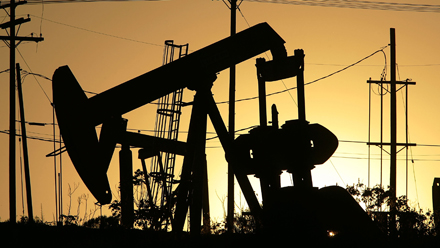 Oil discovered in West Sussex 'could produce billions of barrels'
Oil discovered in West Sussex 'could produce billions of barrels'Speed Read Most experts warn that fracking would be needed to extract commercial quantities of oil from the region
-
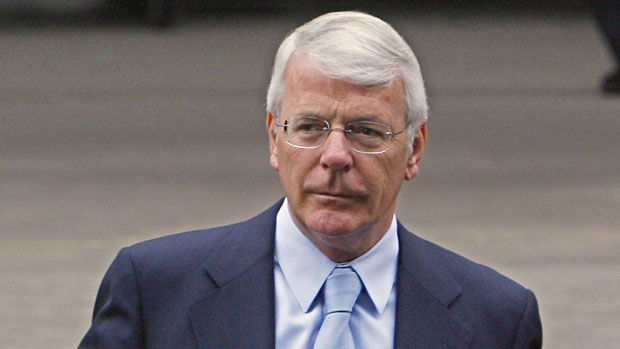 John Major praises 'guts and drive' of immigrants in the UK
John Major praises 'guts and drive' of immigrants in the UKSpeed Read Former PM's tone on immigration contrasts with that of Cameron, who has launched crackdown on 'benefit tourism'
-
 Toasts to Osborne in Tunbridge Wells: but what about the rest?
Toasts to Osborne in Tunbridge Wells: but what about the rest?In Depth Comfortably-off savers and pensioners get a Budget boost – and a reason (perhaps) to vote Tory not Ukip
-
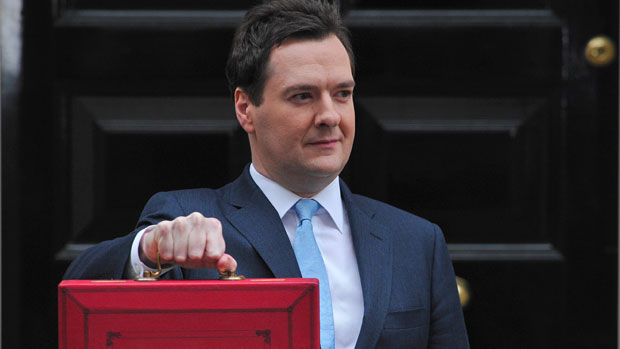 Budget 2014: what we want vs what we'll get from Osborne
Budget 2014: what we want vs what we'll get from OsborneIn Depth The Chancellor might have a surprise up his sleeve but this won't be a Budget full of tax giveaways
-
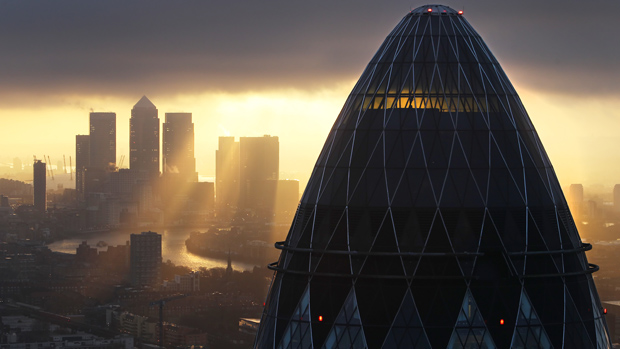 GDP swells by 0.7% as UK show 'fastest growth' since 2007
GDP swells by 0.7% as UK show 'fastest growth' since 2007Speed Read Economy is 'robust', but growth slowed slightly in last quarter of 2013 and construction shrunk
-
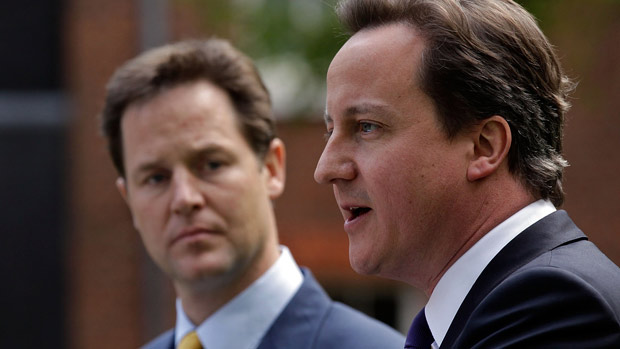 Coalition hails real terms 'wage rise' despite Labour denials
Coalition hails real terms 'wage rise' despite Labour denialsIn Depth The government says wages for most people rose faster than the cost of living over the past year